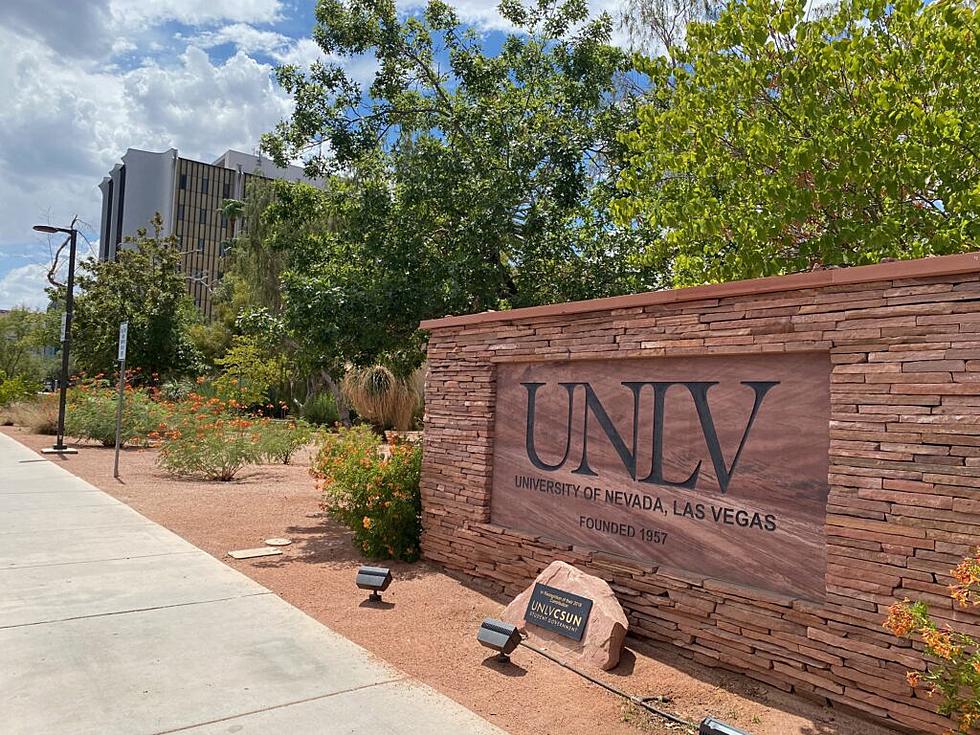
Groups: UNLV failure to remove pro-Palestine protestors violates policy
Dana Gentry
(Nevada Current) Faculty, student, and Jewish organizations are calling on UNLV President Keith Whitfield to investigate whether three pro-Palestinian protesters who disrupted a lecture last week and the failure of campus police to remove them from the event was in violation of the school’s free speech policies.
The protesters interrupted guest lecturer Asaf Peer, a physics professor from Bar-Ilan University in Israel, who was speaking about black holes. An edited video of the incident shows Peer attempting to engage the protesters, suggesting he would “explain exactly why you’re wrong” about Israel’s response to the Oct. 7 attack on Israel by Hamas.
Campus police responded when notified of the incident, but declined to remove the protesters, citing their First Amendment right to protest, according to Peer.
The event was an “open lecture as part of a public physics symposium,” says UNLV Director of Public Affairs Francis McCabe.
UNLV’s free speech policy does not appear to allow for protesters to interrupt lectures.
“On University grounds open to the public generally, all persons may exercise the constitutionally protected rights of free expression, speech, and assembly,” the policy says. “Such activities must not, however, unreasonably interfere with the right of the University to conduct its affairs in an orderly manner and to maintain its property, nor may they interfere with the University’s obligation to protect rights of all to teach, study, and fully exchange ideas. Physical force, the threat of force, or other coercive actions used to subject anyone to a speech of any kind is expressly forbidden.”
Peer says police initially asked whether the event was a political debate. He says he explained it was a scientific event.
“They then went to the corridor to consult with the organizer, and after a few minutes they returned and announced that they decide to end the event, and to escort me outside of the campus, in order to ensure my safety,” Peer said via email. “When I asked why they decided to do so, they answered that (1) since the event is announced as a public event, everyone has the right to be present in the room, and they have no right to ask anyone, including the protesters, out of the room. (2) Due to freedom of speech, they cannot enforce the protesters to be quiet.”
“What about my freedom of speech?” Peer asks, adding the protesters achieved their goal of ending his lecture.
“After conferring with University Police, UNLV faculty decided to pause the lecture by Prof. Asaf Peer as a result of the interruptions,” McCabe said via email. “University Police then accompanied the guest lecturer to his vehicle as a precaution only. Prof. Peer was able to complete his lecture virtually later that day.”
Campus police did not respond to a request for comment.
Members of the Jewish Faculty and Student Group want Whitfield to speak out publicly about the incident and the response by campus police.
“We are very concerned about this incident. In the face of it, there appear to be serious questions about campus security, academic freedom and the enforcement of existing University policies on free speech.” the group said in a statement. “We have made formal inquiries to senior University leaders, and we are awaiting clarification of their understanding and of their intentions to address this serious matter.”
Whitfield was not available for an interview, McCabe said.
Pro-Palestinian protests are not new to UNLV, nor are they uncommon on college campuses in the U.S. since Hamas’s Oct. 7 attack on Israel, and that nation’s military response that has killed as many as 30,000 in Gaza, according to Palestinian officials. Lawmakers demanded the resignation of three college presidents after Congressional hearings last year on anti-semitism. Two of the presidents have resigned.
The Anti-Defamation League is asking Whitfield to “make clear that such disruptions and interruptions of academic opportunities is inappropriate and that the targeting of a guest lecturer based on his national origin, in this case an Israeli scholar, is unacceptable.”
Jolie Brislin, the ADL’s regional director, told Whitfield the organization defends freedom of speech.
“However, disrupting class presentations and other students’ opportunities to learn and hear from visiting scholars, as well (sic) preventing guest lecturers from speaking, is not aligned with the values of free speech,” Brislin wrote. “Moreover, the targeting of an Israeli Professor simply for his national origin is outrageous —Professor Peer was not on campus speaking about the Israeli-Palestinian conflict or the Israel Hamas war. Rather, he was speaking to a physics class on his subject matter expertise—which has nothing to do with the conflict.”
Whitfield responded in a letter dated March 1 that he and others are reviewing the incident “to determine how we can better handle such situations in the future,” acknowledging the need for consistency in the university’s approach to free speech and academic freedom “while also understanding the boundaries of protected speech, especially when it involves academic programming and related functions, or class lectures.”
Whitfield is scheduled to deliver the school’s State of the University speech Tuesday.
